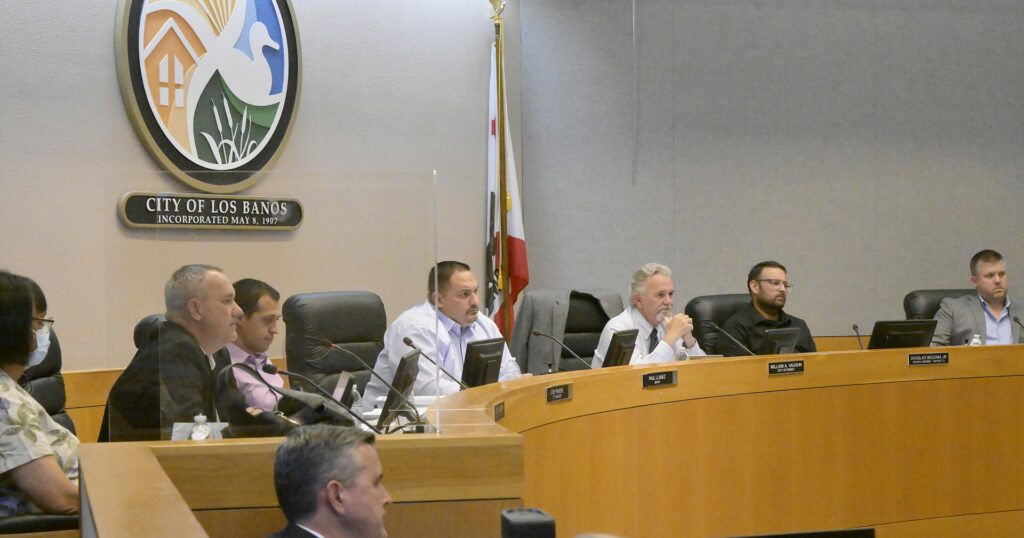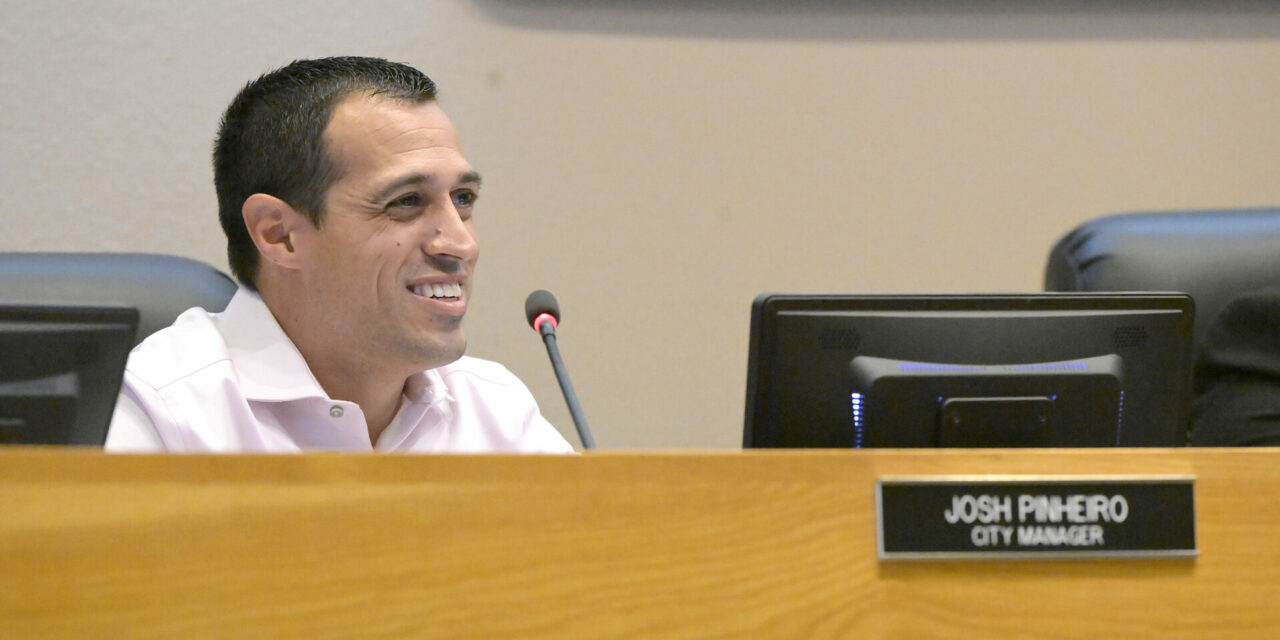When your city is being compared to Bell, California, it’s worth paying attention – especially if those making the comparisons include a former city manager and former city councilman.
In 2011, the city administrator of Bell was found guilty of tax fraud stemming from having paid himself $1.5 million and having spiked his pension so he’d get $1 million annually in retirement. The Bell mess resulted in seven officials being convicted, several going to prison, 60 lawsuits and a stark cautionary tale for anyone involved in local government. At the heart of Bell’s problems was a city administrator who had become an “unelected and unaccountable czar,” in the words of prosecutors.
Los Banos “is Bell, California, in the making,” said Greg Wellman, who served as Los Banos’ interim city manager for nearly seven months in 2022. “Sometimes you have to have a clarion call so people will listen. This is a clarion call. There’s a strong (city council) majority and no visible opposition that I can see. They can do what they want to do; they feel entitled and empowered – and they are.”
Refugio Llamas, a former career Marine who lost his council seat in 2022, agrees: “We need the grand jury to use its authority to get answers for us; to assure us that we’re not going to have a City of Bell situation.”
A prominent Fresno attorney said what’s happening in Los Banos is “certainly reminiscent of Bell.”
The similarities to Bell do not stem from any reported corruption or malfeasance, but from the Los Banos city council’s decision to give its fired, then rehired city manager unprecedented job protections by requiring a 5-0 vote to terminate his contract. That, and a $1.8 million payment.
The concerns have their origins in October 2021, when Josh Pinheiro was named city manager – the top executive in charge of all city operations. He had no previous experience in public service and very little, if any, executive experience. Nine months later, in mid-June 2022, he was fired when three council members changed their minds.
Eight months later — after an election replaced two members of the council, including Llamas – the new council majority rehired Pinheiro, gave him a raise and the controversial payment.
Now, seven months into his second tenure, there have been irregularities in passing the city budget, acrimony at City Council meetings and the departure of dozens of city staffers including the well-regarded chief of police, who announced his retirement Aug. 2. He was the third of seven department heads to leave city employment since Pinheiro was originally hired. This week it was learned that a fourth department head – public works director Nirorn Than – has tendered his resignation as well.
The Express has been looking into the actions of the council, changes in common procedures and disgruntlement at city hall.
Any examination of the council’s actions must begin with the decision of four councilmembers in February to rehire Pinheiro and give him a payment of $1.8 million.
Cities routinely reach settlements with outside parties, but the payments usually arise from legal filings or involve disputes over services or goods. In this case, there was no lawsuit and no services or goods provided. There was only a letter from a San Jose lawyer alleging a “wrongful” firing and “harm” to Pinheiro.
Indian Harbor Insurance Co., the city’s employment liability insurance provider, said in a Jan. 9, 2023, email to city attorney William Vaughn that the city’s $1.8 million payment would not be covered because it “was made outside of the defense counsel’s recommendation and without our consent.”
So, the council – two of whom publicly call themselves long-time friends of Pinheiro – voted to pay the entire amount from the city’s general fund. The $1.8 million payment to Pinheiro represented roughly a tenth of the city’s unallocated general funds at that time and was nearly 10 times his original annual salary.
For context, the $1.8 million was more than the city’s 2021-22 budget for its entire administrative staff ($1.5 million). It was more than the city spent ($1.3 million) on Community and Economic Development and more than it paid for capital outlays for the police department ($562,500) and the Streets Department ($485,000) combined.
The payment confounded former councilmember Llamas: “There were no facts, no discovery (in court). Based on nothing, the city council decided to pay him $1.8 million.”
A prominent Fresno employment attorney wondered what the city got in return.
“Normally, you pay something to resolve an outstanding issue,” said the attorney who frequently represents public employees and wanted to remain unidentified. “If no issue is out there, then what’s (the payment) for? … In law, a contract (the $1.8 million payment) is enforceable as a consideration received in exchange for value. I’m just asking the question: For that much money, what did the city get in exchange?”
More importantly, “I would think a taxpayer within the city could file an action against both parties to vacate that agreement.”
Such “claw-back” actions are unusual, but not unprecedented. The attorney recounted a school board in California that voted to provide a fired superintendent with a payment several times greater than his annual salary. A resident of the district sued, and the judge found the superintendent was due nothing more than his contracted salary for the year; the settlement had to be returned to the district.
Others have suggested the payment violated Article XVI of California’s constitution. It prohibits spending public funds unless there is “a direct and substantial public purpose.” If there is no public purpose, the payment could be considered a “gift of public funds” – which is illegal.
Pinheiro “won the Los Banos lottery by being friends with members of the council” wrote an anonymous resident in a letter read into the minutes the of Feb. 15 meeting at which he was rehired. Another resident asked that Pinheiro’s complaint be sent to arbitration.
Wellman said that caving into Pinheiro’s demand based on a single letter from a lawyer “is unheard of. … Who in their right mind gives him $1.8 million?”
Former councilmember Llamas said: “There was no reason to do it. There were no services provided, no contract entered into. It was just, ‘This is my friend.’ … And we had the legal opinion not to pay it.”
Mayor Llanez deferred questions about the payment to city attorney William Vaughn, who did not respond to a request for comment. But during the Feb. 15 council meeting, Llanez justified the payment saying: “Time is more valuable than money. So, to spend $1.8 million to get $50 million worth of things done? I’ll do it every single day of the week.”
In a more recent interview, he said “I did my due diligence; we made the best decision possible and I’m happy with it.”
In the letter, Pinheiro’s lawyer insists the firing lacked cause – a term echoed by Mayor Llanez and some councilmembers. The letter also said Pinheiro suffered lost wages, emotional distress and harm to his reputation.
But Pinheiro’s original contract is similar to those signed by most city managers throughout the Valley. It repeatedly describes him as an “at-will” employee. It reads, “the City Manager serves at the will and pleasure of the City Council.” It goes on to say nothing constrains the council’s “absolute right to terminate, with or without cause or reason, the employment of the Employee.”
A city attorney from another jurisdiction said he advises cities not to provide reasons, or cause, when firing a city manager – a practice most cities follow.
Yet, the unnecessary lack of “cause” was an essential point in the council’s decision to make the payment, according to Mayor Llanez and other council members.
The contract is equally clear on compensation, saying the city manager “shall not be entitled to any severance compensation” if terminated.
In the letter, Pinheiro’s lawyer claims a member of the council was “frustrated” with Pinheiro for “not giving in to his political whims.” The councilmember’s name and circumstances were redacted.
Judging damage to a “reputation” is subjective. Irate residents, unhappy employees and disgruntled councilmembers all are entitled to express opinions about a city manager’s performance. That’s usually considered part of being in public service. But suing a city for damage to reputation is rare.
Wellman, who has served 40 years as an executive in public agencies, said future employers would consider bringing such a lawsuit “the kiss of death.”
More surprising in the letter is a claim that Pinheiro is entitled to “whistleblower” protection.
Whistleblowers are protected against retaliation when they report actions in four specific categories — corruption, discrimination, harassment and criminal activity. “Personal grievances” do not get whistleblower protection.
It’s highly unusual for a protected whistleblower claim to come from – instead of about — the top executives in an organization.
The lawyer’s letter insisted Pinheiro suffered from retaliation. From whom? For what reason? The portions of the letter that might have explained were redacted.
Pinheiro answers solely to the city council. And publicly, at least, he has never provided any examples of corruption, disclosed allegations of discrimination or reported incidents of harassment that could have resulted in retaliation meriting “whistleblower” protection. Pinheiro has not publicly provided any evidence of criminal wrongdoing.
Pinheiro did not return repeated requests for comment.
NEXT: Is experience important in running a city?
About this report: Journalist Mike Dunbar formerly worked for The Modesto Bee and Merced Sun-Star. Jeff Hood, also a former journalist, provided editing and research assistance for this report.





